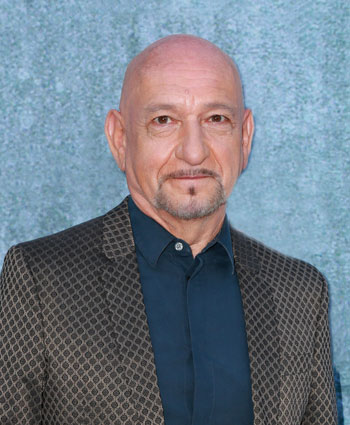3 Questions for Ben Kingsley

Shutterstock
You can’t take a character home with you or you’d go mad; at least I would,” Sir Ben Kingsley says with a laugh. “What I find is that if I leave the character until the next day’s filming, then I go back and get to jump from me to the character. I love taking that running leap from me to him.”
Sir Ben recently voiced the role of Bagheera, the black panther, in the live-action version of Rudyard Kipling’s The Jungle Book and showed his dark side as a gangster in the action-filled kidnap flick Collide. He’s also co-starring with his son Edmund in the upcoming An Ordinary Man, playing a Nazi war criminal on the run.
Jeanne Wolf: In a career spanning over 40 years, you’ve taken on an incredibly diverse range of characters — from your Academy Award-winning performance as Gandhi to some horrific bad guys in Iron Man 3 and Oliver Twist. Are you aware you can be intimidating?
Ben Kingsley: Whatever mythology surrounds me, true or false, is diffused very quickly when I arrive on the set and give everyone a hug and say, “This is exciting. We’ve got a lot to talk about.”
JW: You’re often described as a chameleon. The way you turn into someone else is magical. How do you do it?
BK: I feel quite ashamed sometimes admitting how little research I do and that I just learn my lines. Nobody wants to believe me. But I learn my lines for weeks before a film. The goal is not to let any of my actors or the director down. I’m floored with admiration for Spencer Tracy, and one of his tenets was, “Make the other guy look good.” That’s not to say that I’m not ambitious.
I think that some ambition comes from being told that you’ll never achieve something.
I remember that from my own childhood. And in my adult life I was told by a director of the Royal Shakespeare Company that I would never play leaders or kings or great men — that I would be very good at playing servants. And I knew in my heart that one day I’d prove him utterly wrong in the sense of, “How dare you judge me?” I’ve tried
to let my own kids have some freedom from that.
I try not to interrupt them when they’re working on a new thought or even a new fear — not to interrupt but to step back and watch it flower. So many parents are more interested in power than allowing the other to grow.
JW: How do you keep the work fresh? What drives you?
BK: I am always evolving; otherwise, I guess I couldn’t do my job. If I can’t surprise myself, I can’t surprise my director and my fellow actors and, therefore, the audience — so my quest is to surprise myself. Maybe it’s a little bit like a mountaineer always looking for a particularly dangerous mountain.